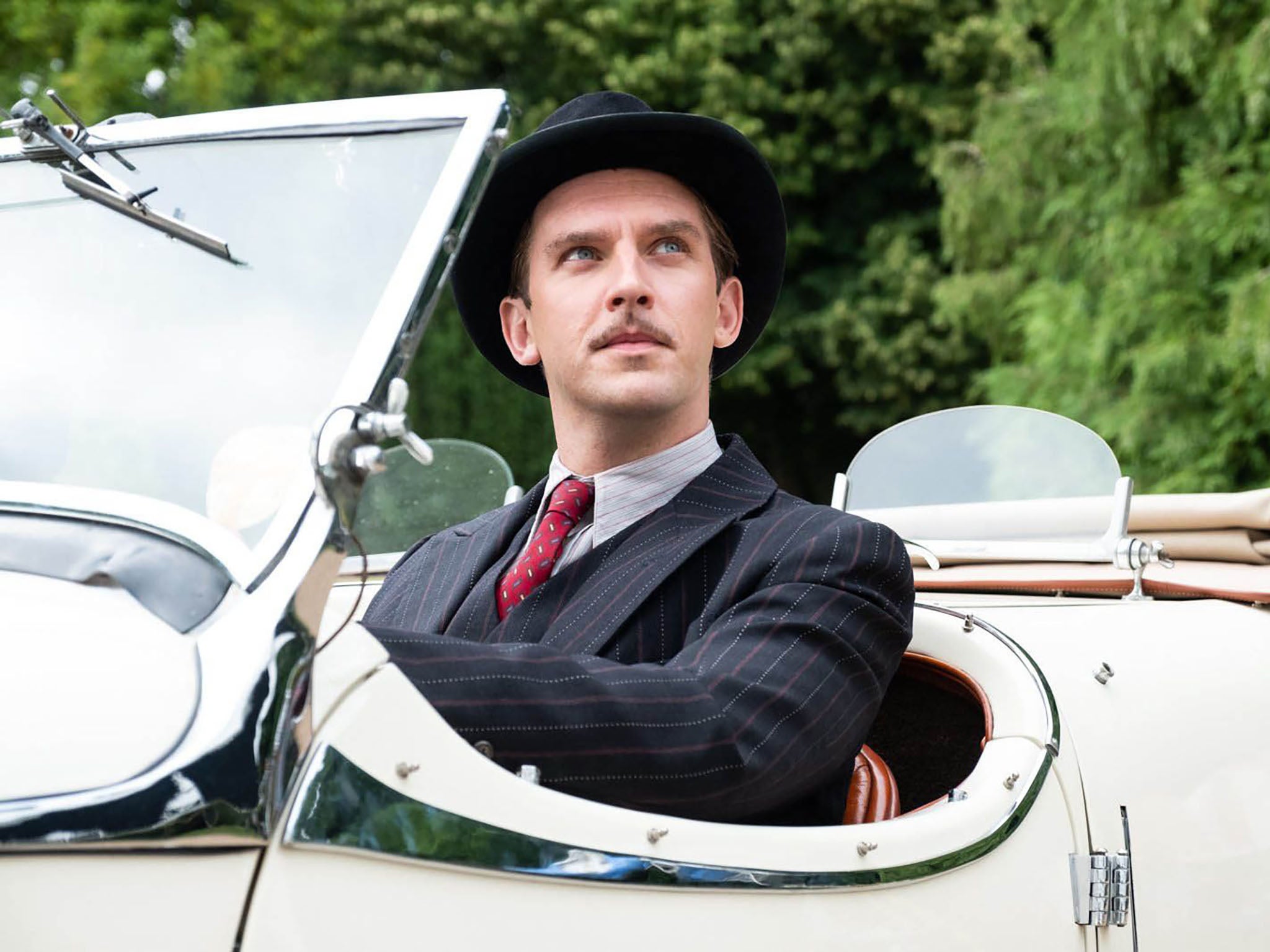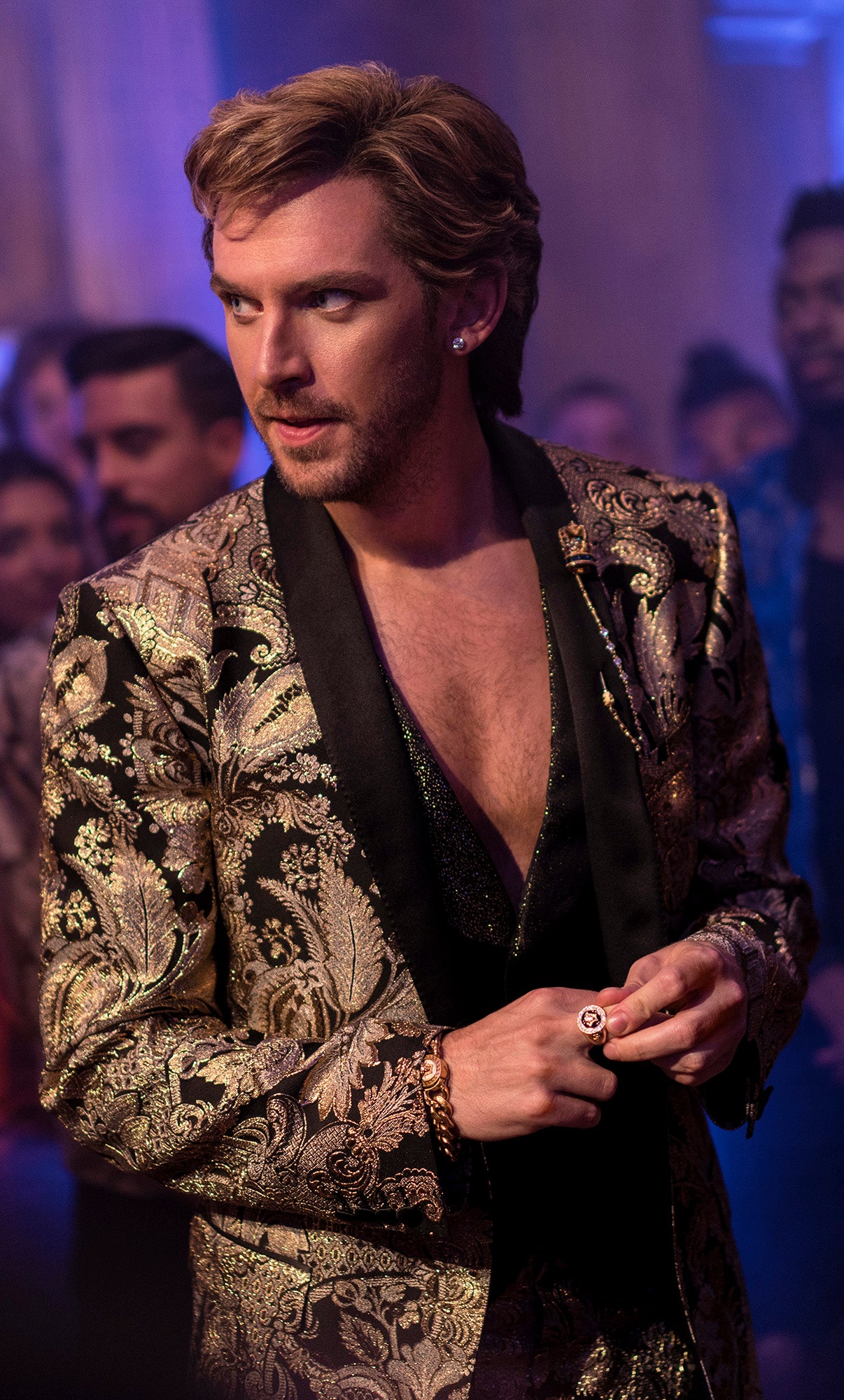Dan Stevens is a movie star now – and the furore over his Downton Abbey exit looks sillier than ever
Brits who try their hand in the States are often mocked, says Adam White, but Stevens overcame particularly rough treatment


Your support helps us to tell the story
From reproductive rights to climate change to Big Tech, The Independent is on the ground when the story is developing. Whether it's investigating the financials of Elon Musk's pro-Trump PAC or producing our latest documentary, 'The A Word', which shines a light on the American women fighting for reproductive rights, we know how important it is to parse out the facts from the messaging.
At such a critical moment in US history, we need reporters on the ground. Your donation allows us to keep sending journalists to speak to both sides of the story.
The Independent is trusted by Americans across the entire political spectrum. And unlike many other quality news outlets, we choose not to lock Americans out of our reporting and analysis with paywalls. We believe quality journalism should be available to everyone, paid for by those who can afford it.
Your support makes all the difference.Downton Abbey bled Englishness. The ITV period drama was as stiff and doddering as most of its cast, masking ludicrous storytelling beneath a veneer of country-house respectability. It luxuriated in rose-tinted nostalgia for the English aristocracy in the 1910s and 1920s. Series creator Julian Fellowes is a Ronald Searle sketch come to life. Yet never was the show more English than when its hardcore fanbase effectively chased one of its key stars out of the country bearing pitchforks and copies of Tatler. Dan Stevens’s apparent crime? Asking to leave the thing.
Eight years after he quit Downton Abbey amid a flurry of cruel press, Stevens has become a largely unheralded fixture in US film and television. There he was in last year’s Eurovision Song Contest: The Story of Fire Saga, rutting omnisexually in gold suits and sporting Clare Balding’s haircut. He starred in the deeply weird X-Men-ish TV show Legion, played the Beast to Emma Watson’s Beauty, brooded terrifyingly in the cult thriller The Guest, and looked on helplessly as his rockstar ex (Elisabeth Moss) spiralled out of control in the masterful indie Her Smell.
This week, Stevens can be seen in Blithe Spirit, a sprightly supernatural comedy based on the Noël Coward play of the same name. He plays a blocked writer who accidentally conjures the ghost of his dead wife (Leslie Mann) during an encounter with a flamboyant medium (Judi Dench). Stepping into the very theatrical shoes of Rex Harrison, who played the role in David Lean’s revered 1945 adaptation of the play, is brave – foolish, even. Stevens isn’t quite as devilish or refined, yet he is nonetheless charming, and the film slips down easily.
Aesthetically speaking, it’s also oddly Downton-esque. There’s that same upper-crust, early-20th-century costuming, those familiarly flat, Sunday-night-telly visuals. Other than Stevens, both projects share something else in common: director Edward Hall, who also shot a number of old Downton episodes. Such familiar territory means Blithe Spirit becomes an unintentional victory parade for the actor, or final confirmation that he was smart to get out of Downton when he did.
In the Christmas of 2012, not only were we able to physically see our grandparents, but we could watch them spitting out their minced pies over Stevens’s shock exit from the show. In a festive season that had already seen James Arthur crowned our newest X Factor winner and apparent saviour of pop, the demise of fancy Matthew Crawley was one maddening injustice too far. More or less the show’s male lead, Crawley had romanced limp heroine Lady Mary (Michelle Dockery), survived the Battle of the Somme and paralysis, valiantly overcome impotence and finally produced an heir – only to careen his car into a passing truck moments after his son’s birth.
Even for a show as frequently ridiculous as Downton, Matthew’s death took the crumpet. Fellowes quickly shifted the blame for the scene, insisting that Stevens’s sudden eagerness to leave the series meant he had no choice but to kill off Matthew so abruptly. There may have been some murkiness about Stevens’s departure, which seemed to have been decided midway through production on the show’s third series (and during contract renegotiations), but it didn’t warrant the hysteria that followed.
“I wanted a chance to do other things,” Stevens explained soon after the Christmas Special was broadcast. “It is a very monopolising job.” Opportunities in America had come up, including film roles and a spell on Broadway, and he wanted to take a punt at it. Downton fans were unconvinced, tweeting in their thousands that Stevens’s decision to leave had ruined their Christmas. “I am 100 per cent done with this show!” tweeted one viewer. “I cannot breathe!” A petition was drawn up to have Stevens “immediately deported back to the UK” upon his arrival in New York. “He will be given a choice,” the petition read, “either return to the show for at least another two full seasons or be permanently banished from the United States.”
Practically overnight, Stevens became the black sheep of UK drama, or an abject monster we collectively decided was to be destroyed at all costs. Stevens would run the gamut of responses to the backlash, from defiance (“I felt it was the right moment to leave – it is what it is,” he said in 2014) to guilt (“I’m still apologising to people now,” he said in 2017). It was all very, very silly. It was also exposing.
Beneath the sensational tabloid headlines and social media hysteria was a feeling of personal betrayal – as if Stevens hadn’t just left a hit show, but broken a kind of social contract. The pale and moon-faced star of a cosy ITV soap was suddenly chiselled and tanned, his career aspirations interpreted as an arrogant rejection of the UK as a whole.

Watch Apple TV+ free for 7 days
New subscribers only. £8.99/mo. after free trial. Plan auto-renews until cancelled

Watch Apple TV+ free for 7 days
New subscribers only. £8.99/mo. after free trial. Plan auto-renews until cancelled
The UK has always had a strange relationship with British stars pursuing fame in America. A tier system seems to exist, with a select few “serious actors” cheered on as they venture out (Benedict Cumberbatch and Olivia Colman spring to mind), and others watched with morbid glee, their abject failure hoped and prayed for. Stars from working class backgrounds tend to bear the brunt of it, as well as women recognised in the UK press as conventionally beautiful – Cheryl Cole, whose short-lived run on American Idol was serenaded by mean tabloid stories about her clothes, Geordie accent and alleged McVitie’s digestive consumption, intersected both.

There’s also the soap opera factor. If a British actor spends years on a soapy melodrama being generally decent if not wildly exceptional – meaning not Sarah Lancashire or Suranne Jones (neither of whom tried to crack the US) – they will be jeered at for striving for something bigger. In 2010, former Emmerdale star Adele Silva was photographed working in a Los Angeles clothing shop shortly after moving to the US to find acting roles. It was written about in newspapers as if it was a humiliation. The power and influence of the UK press means that such a message then trickles outward to regular people, with the UK class system echoing its rulebook. Namely that extraordinary success is justified in and expected of a select few, who tend to have been born into the same wealthy and well-connected bubble as those who came before them. To want it, and confidently seek it out with determination, is frowned upon.
While he’s posh, white and a man, and therefore destined for a far easier ride than most, Stevens was also an ITV star famous for a soap opera watched by millions. He faced similar press mockery in light of his professional ambition. “So, Dan, are you really happy you ditched Downton?” sneered the Daily Mail a year after he quit the show, the newspaper appearing to have given him 12 months to turn into Tom Cruise. “I’m sorry his career hasn’t taken off the way he had hoped, but I am still very angry with Mr Stevens!” wrote one aggrieved commenter. “He ruined a good thing for me and all of the other fans of Downton!”
Watching Stevens in Blithe Spirit or Eurovision Song Contest is a testament to his Downton decision-making, the work he put in after he left the show, and his unusual appeal as a performer. Stevens has an actorly charisma that doesn’t so much immediately declare itself as sneak up on you. Few will declare themselves Dan Stevens fans, or deliberately seek out movies because of him, but he’s a dependable presence, who can be odd or outlandish, unexpectedly sexy or compellingly ordinary. Little of which would have been showcased if he hadn’t quit Downton Abbey when he did. The baying, reactionary jeering he encountered in 2012 may incite pangs of guilt here and there, but Stevens would be smart to recognise that it was always less about him, and far more about us.
Blithe Spirit is released on 15 January on Sky Cinema, and via NOW TV with a Sky Cinema pass

Join our commenting forum
Join thought-provoking conversations, follow other Independent readers and see their replies
Comments